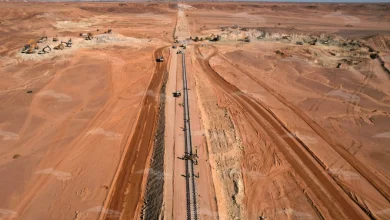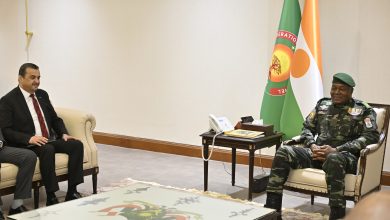KUALA LUMPUR – A potential resolution to the strained economic relationship between Brazil and the United States appears to be on the horizon, with Brazilian President Luiz Inácio Lula da Silva expressing confidence that a trade agreement could be finalized within days. Speaking to reporters on the sidelines of the ASEAN summit in Kuala Lumpur, Malaysia, President Lula stated, “I am confident that in a few days we will have a definitive solution between the United States and Brazil, so that life can continue well and happily.” This optimistic outlook follows a brief but significant meeting between Lula and U.S. President Donald Trump on Sunday in Kuala Lumpur.
The prospect of a trade agreement offers a potential reprieve from punitive tariffs imposed by Washington following a period of escalating tensions between the two nations. These tariffs, most notably a 50% levy on Brazilian imports, have significantly impacted Brazil’s economy and strained diplomatic ties. President Lula had previously appealed to Trump to remove these tariffs, deeming them detrimental to both countries’ interests.
The relationship between Brazil and the United States has been turbulent in recent years, marked by political and economic disagreements. The imposition of tariffs by the Trump administration came amidst broader friction, including economic sanctions against Brazilian Supreme Court Justice Alexandre de Moraes and his wife. These sanctions were purportedly linked to Justice de Moraes’s role in investigating and prosecuting individuals involved in an alleged attempted coup in 2022, a case that saw former Brazilian President Jair Bolsonaro, a known ally of Trump, implicated.
Justice de Moraes was sentenced last month to 27 years in prison for his role in the attempted coup, a move that has further inflamed political tensions within Brazil and drawn international scrutiny. The sanctions against Justice de Moraes and his wife were widely condemned in Brazil as an unwarranted interference in the country’s judicial processes and an affront to its sovereignty.
Despite these deep divisions, signs of rapprochement emerged in September when Lula and Trump held a brief encounter on the sidelines of the United Nations General Assembly in New York. This initial meeting paved the way for Sunday’s more substantive discussion in Kuala Lumpur, signaling a potential shift towards improved relations.
While President Trump refrained from making explicit promises, he assured President Lula that both sides would work towards a mutually beneficial agreement. When questioned by reporters about whether the case of Jair Bolsonaro would be discussed during the meeting, Trump responded tersely, stating, “That’s none of your business.” However, he affirmed to Lula his intention to reach “good agreements for our countries,” adding, “I think we’re going to have a very good relationship in the end.”
Despite the apparent progress, significant ideological differences remain between the two leaders on issues such as multilateralism, international trade, and climate change. Lula da Silva has consistently championed multilateral cooperation and a rules-based international order, while Trump has often expressed skepticism towards international institutions and pursued protectionist trade policies. Similarly, Lula has prioritized environmental protection and combating climate change, while Trump has questioned the scientific consensus on climate change and withdrawn the United States from the Paris Agreement.
For more information about Economie, check our dedicated section.
These fundamental disagreements could present challenges in negotiating a comprehensive and sustainable trade agreement. However, the potential economic benefits of resolving the trade dispute appear to be a strong incentive for both sides to find common ground. The removal of tariffs would boost trade between the two countries, create jobs, and stimulate economic growth.
For Brazil, a trade agreement with the United States would provide access to one of the world’s largest consumer markets and attract foreign investment. It would also help to diversify Brazil’s export markets and reduce its reliance on China, its largest trading partner. For the United States, a trade agreement with Brazil would strengthen its economic ties with Latin America and enhance its competitiveness in the global market.
The upcoming trade negotiations will likely focus on a range of issues, including tariffs, non-tariff barriers to trade, intellectual property protection, and investment regulations. Both sides will need to make concessions in order to reach a mutually acceptable agreement.
The prospect of a trade deal between Brazil and the United States is being closely watched by businesses and policymakers around the world. A successful agreement would not only benefit the two countries directly involved but also send a positive signal about the future of international trade and cooperation. It could also help to stabilize the global economy at a time of increasing uncertainty and geopolitical tensions.
However, some observers remain cautious, pointing to the deep-seated political and ideological differences between Lula and Trump. They argue that it remains to be seen whether the two leaders can overcome these differences and forge a lasting partnership. The complexities surrounding the Jair Bolsonaro case also add a layer of uncertainty to the situation. Any perceived interference by the United States in Brazil’s internal affairs could jeopardize the trade negotiations and further strain relations between the two countries.
Ultimately, the success of the trade negotiations will depend on the willingness of both sides to compromise and to prioritize their shared economic interests. If Lula and Trump can put aside their differences and work together, they have the opportunity to forge a new era of cooperation between Brazil and the United States.




